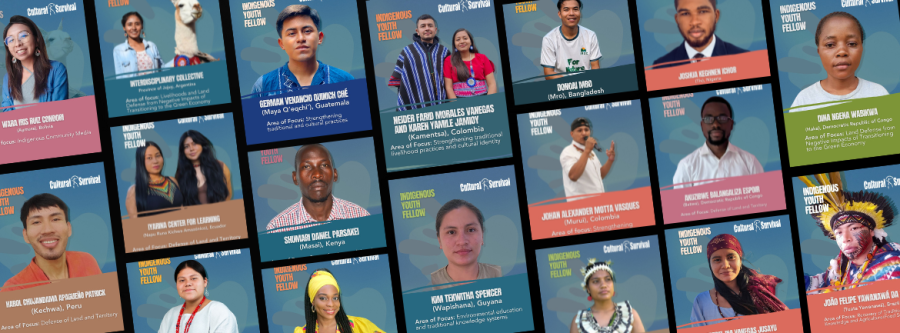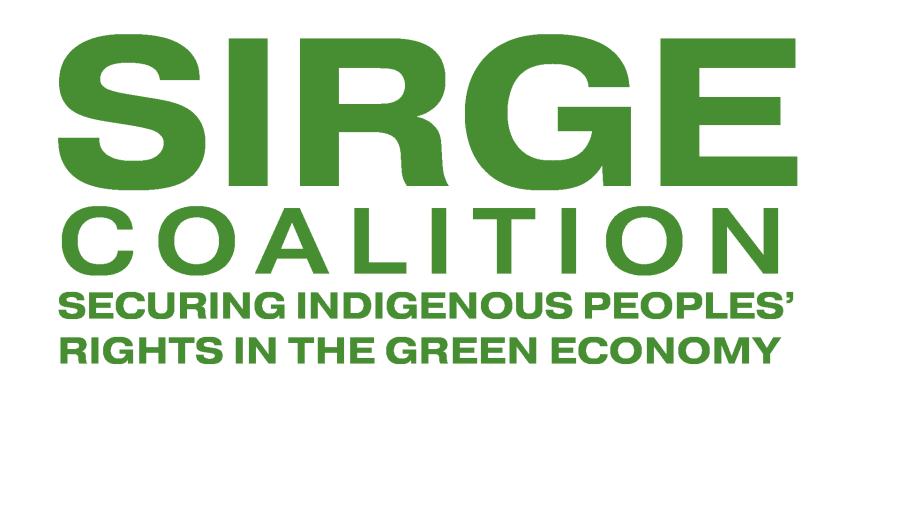
by Kelsey Klug
The Amnesty International Report 2012: The State of the World’s Human Rights reviews human rights developments and events in countries throughout the world that took place during the 2011 calendar year. Political uprisings and governmental upheavals, especially in the Middle East and North Africa, were widely reported by the international media. Somewhat less coverage was given to the human rights abuses happening throughout the Americas, particularly those being perpetrated against Indigenous Peoples.
In numerous instances, governments and corporations around the world were neither “taking Indigenous Peoples’ rights seriously” nor “showing the political will to roll back decades of entrenched discrimination.” All countries in North and South Americas have endorsed the UN Declaration on the Rights of Indigenous Peoples, but official behavior in accordance with the Declaration’s Articles remains a rare exception.
Many of these problems are not unique to Indigenous Peoples in the Americas—they are carried out against disadvantaged communities across the globe. In Africa and Asia, as well as the Americas, “governments tried to control publicly available information.” Governments restricted coverage of certain events during the revolutions in the Middle East and Africa; Indigenous communities continue to struggle against the government shutting down their radio stations; China banned specific websites and search terms, and even in Puerto Rico, students couldn’t search for “advocate”; and publication of certain newspapers stopped in many regions.
Despite the fact that both the 1996 Peace Accords ending the Guatemalan civil war and Article 16 of the UN Declaration on the Rights of Indigenous Peoples—which Guatemala supported—guarantees the right of Indigenous people to control their own media, the Guatemalan government still outlaws radio licenses for non-profit community radio, only permitting commercial and government radio programs. Community radio stations serving hundreds of thousands of Indigenous people in their numerous native languages are frequently raided by Guatemalan police forces who detain the broadcasters and confiscate their equipment.
Article 14 of the Declaration states that Indigenous communities have the right to “establish and control their educational systems and institutions providing education in their own languages,” yet there is very little governmental support for the development of such institutions. For instance, the United States once passed legislation ostensibly supporting schools teaching Native American languages, but more recent and powerful legislation contradicts that stance and makes it very difficult for Native language programs to succeed. Denying Indigenous Peoples the right to use their own languages may not be physically abusive, but it is nonetheless a form of violence that harms these communities and their cultures, and one that can later be used to take away other human rights.
Forced evacuations took place on every continent. "People are left homeless and destitute, if not in prison, after their homes and belongings are destroyed by government or security forces," with little to no opportunity for restitution; residents trying to resist these abuses were frequently met with excessive force and occasionally killed. Sometimes these evacuations took place at the hands of civilians looking to seize more farmlands for themselves, like when Bengali settlers attacked Indigenous people in Bangladesh without any intervention from onlooking officials; sometimes they were carried out by governments to get rid of locally-unwanted groups, as was the case when officials discriminated against, displaced, and deported Roma communities across Europe and forced Aboriginal people to abandon their traditional homelands in Australia by limiting local access to water and basic sanitation; sometimes rural peoples were “voluntarily” forced to flee from their homes in the face of armed conflicts like those raging in Colombia; sometimes they were instigated by corporations looking to build dams or mining or development projects without the hassle of complying with Indigenous peoples’ rights—this was prevalent throughout the western hemisphere.
A situation similar to the one facing Australian Aboriginal peoples may be developing in Canada, where a recent federal study concluded that 73 percent of drinking water systems and 65 percent of waste water systems in First Nation communities across the country pose at least a medium-level health risk. If such problems continue, the people in these communities will need to choose between remaining on their traditional territories in dangerous conditions or leaving their homelands in order to access basic utilities—this is clearly a choice they should not be forced to make.
Many Indigenous, disadvantaged, rural, and poor people are leaving their communities in order to escape the internal armed conflicts in countries across Central and South America. This is widespread issue in Colombia, where the government has actually taken steps to return land to and provide compensation for the victims of this violent displacement through its Victims and Land Restitution Law. However, many people affected by the conflicts are not included in the scope of this law. Additionally, threats and violence (including deadly attacks) against human rights leaders who are helping victims to seek their restitution has escalated, “rais[ing] doubts about the government’s ability to make good on its promise to return land to the rightful owners.” The people accused of perpetrating these crimes against Indigenous people are sometimes convicted of lesser offenses like torture, kidnapping, and arson, but are frequently acquitted of murder charges.
The Argentinean government put a temporary hold on all evacuations of Indigenous people. Unfortunately, this hold is only in effect until the results of a national survey of Indigenous territories is completed in 2013, and despite the ban, many Indigenous communities continue to be illegally threatened with forced evacuations. In light of these problems, the UN Special Rapporteur on Indigenous People expressed concern about the absence of a mechanism to consult with Indigenous communities and the lack of any real protection of Indigenous land rights. A law to combat racial discrimination was passed in Bolivia and welcomed by the UN, yet it was also the subject of some concern due to “the under-representation of Indigenous Peoples in decision-making bodies” and worries about implementing the legislation and coordinating it with the rest of the justice system.
In one case last year, Brazil made no real attempt to coordinate the interests of its Growth Acceleration Program with the mandates of the UN Declaration on the Rights of Indigenous Peoples or the Organization of American States (OAS), an international system charged with upholding democracy, human rights, security, and development in the Americas, whose charter has been ratified by all 35 countries in the region. This government program is facilitating large-scale development projects that have a heavy impact on Indigenous and rural people, but the corporations involved show little interest in complying with Indigenous Peoples’ rights to give or withhold their free, prior, and informed consent (FPIC) for projects that will affect their lands and resources. The OAS’s Inter-American Commission on Human Rights ruled that Brazil had to cease construction on the Belo Monte dam “until measures had been put in place to protect the lives of communities in voluntary isolation.” To do so, Brazil was to consult with potentially-affected Indigenous communities and provide social and environmental impact assessments to them before it could continue dam construction. Instead, Brazil just withdrew its ambassador to the OAS. Unbelievably, Brazil’s response was supported by the Secretary General of the OAS, who called on the Commission to “review” its decision. Eventually, the Commission—which pledged to be especially attentive to the rights of “those populations, communities, and groups that have historically been the targets of discrimination—reduced its requirements for Brazil, allowing the devastating construction to resume. So although the Commission professes to follow the pro homine principle and interpret laws in "the manner most advantageous to the human being," the so-called rights of a corporation were placed above the human rights of numerous Indigenous peoples in this important case.
FPIC violations are not just a problem in South America, however: in the spring of 2011, a leaking pipeline spilled massive amounts of crude oil onto the traditional territory of the Lubicon Cree in Canada. Yet only a few months later, without proper consultation with or agreement from the Lubicon people, the provincial government allowed the pipeline to resume its operation. This is a violation of the Lubicon communities’ right to free, prior, and informed consent (FPIC) as laid out in the UN Declaration on the Rights of Indigenous Peoples—in Articles 28, 29, and 32, the Declaration states that the consent of Indigenous peoples is a prerequisite for the approval of any project affecting their lands or resources, and they are entitled to restitution for any damage to those lands and resources.
There was some progress made in Bolivia with regard to recognizing FPIC rights: the President decided to cancel a road that would have been constructed through the Isiboro-Sécure Indigenous Territory and National Park. Unfortunately, he only reached that decision after weeks of protests—which were rife with injuries from the tear gas and truncheons used by security forces—by Indigenous people and their supporters, who said that construction the road would violate both FPIC rights and other environmental laws.
The government of Peru made more solid and hopefully long-term progress when it passed the Consultation with Indigenous Peoples Law. This landmark legislation is the first in Latin America to make it mandatory to consult with Indigenous peoples before allowing development projects to progress on their lands. If there are cases where the developers and Indigenous communities cannot reach an agreement, then the government is charged with taking “all necessary measures to ensure that the collective rights of Indigenous Peoples are guaranteed.” Peru has become a leader by beginning to enact laws upholding the promises it made by endorsing the UN Declaration on the Rights of Indigenous Peoples. However, there are still concerns that conflicts will arise over projects that were approved by the government before this legislation came into power.
Injustice and discrimination have continued in 2012: the Rapa Nui people have been fighting to reclaim their traditional lands—which are now under commercial development—on Easter Island, but the Chilean Supreme Court rejected their case, saying instead that the Native peoples have actually been illegally squatting on Easter Island since it was annexed to Chile in 1888. Yet there have also been a few hopeful events mixed in with this disregard for Indigenous rights: non-Indigenous people in Paraguay have been allowed to illegally occupy Indigenous territory since the 1960s, but the Supreme Court has decided to end that arrangement and return full occupation rights to the Pataxó Hã-Hã-Hãe people. In El Salvador, Indigenous Peoples will finally be recognized in the Constitution in 2012—this change will acknowledge their right to use their own languages and engage in other expressions of their cultures. Human rights advocates must continue to get the Indigenous rights secured on paper—such as FPIC—implemented in real world systems; such solid gains and persistent demands will help to increase governmental recognition of and support for Indigenous Peoples’ rights.



